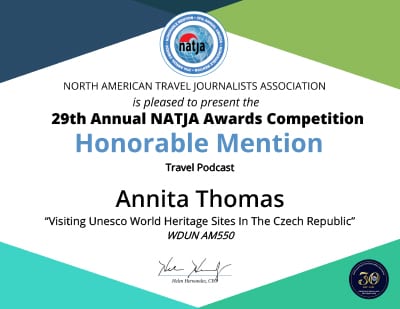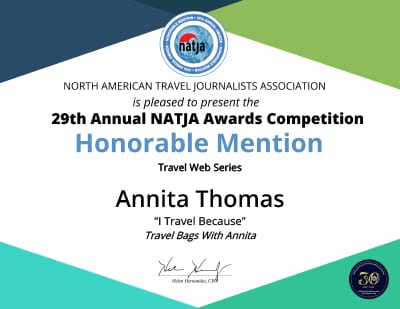
Traveling with your best buddies creates one of your most memorable getaways.
Traveling with friends and handling disputes is key to a great trip. Your best friends have been by your side through thick and thin. For many of us friends are like family and are ready to share laughs and tears, ups and downs and everyday routines. When friends are like family you’ll also find disputes and conflict; disagreements about things which may appear simple but are equally important to each person. How we handle this conflict can determine the strength and longevity of our friendships and our success with creating bonds which last a lifetime. We reached out to Dr. Melanie Gallo, a business coach who leads her clients in understanding conflict and how to approach disputes in a positive and results focused manner. We asked Dr. Gallo to share her expertise.
Q. Dr. Gallo, please provide a little background on group conflict.
A. There are 3 types of group conflict and some conflict is actually productive.
Task conflict (productive) disagreements about the group’s task
Process conflict (productive) disagreements about how the task is done
Relationship conflict (not productive) interpersonal disagreements unrelated to the group’s task
Q. When we are in dispute with someone, emotions can run high. Can you give us a little background about our emotions?
A. We all have a measurable, inborn need to either approach or avoid emotion-inducing situations, and we all have different levels of this need. This is called our need for affect (or the experience of emotion).
People scoring high in need for affect just like the feeling, of feeling. They possess a greater inborn need to approach situations that allow them to experience emotional reactions. They are comfortable with emotions and view them as being productive, and useful. They may also desire to have a deeper understanding of the emotions of themselves and others. They like the experience of emotions whether positive (like interest-excitement, and enjoyment-joy), negative (distress-anguish, anger-rage, fear-terror, shame-humiliation, or disgust), or neutral (surprise-startle).
On the flip side, people who have a naturally low level of need for affect possess an inborn need to avoid situations that stir up emotions. These individuals may prefer to avoid things like sad movies or confrontations, because they instinctively want to avoid feeling the negative emotions that go along with those situations.

Q. Can you give us 5 tips for preventing conflict during a friends trip? After all, we’re there to have fun and not to argue.
A. (1). Remember we are different.
Whether you are traveling with a close group of friends or a group of new friends, it’s good to remember that all individuals are different. Differences in personality and emotional needs can cause misunderstandings and differing perspectives. Therefore, it’s helpful to have an awareness of and sensitivity to these differences.
(2). Find out what everyone wants.
(List adapted from “Girlfriends Getaway to Gulf Shores and Orange Beach” Travel Bags with Annita and Friends, 2018)
While you and your crew are busy planning your getaway, be sure to discuss:
Budget
Destination – How does everyone like to travel – Do you prefer the Ritz Carlton while your friends prefer to bunk in a hostel or a yurt? Depending on how close you are, you may already have some idea of what your friends like.
Activities – You may all want to go to Hawaii but are you imagining spending 90% of your time on the beach and 10% seeing the sights, or vice versa? Try to communicate this with each other ahead of time so that expectations are known.
Driving shifts
Who pays for what
How to split meals
Sleeping arrangements
The best time to discuss these details with your group is before the trip, during the planning stage. Research notes that people experience a variety of positive emotions as they plan vacations, from facilitative feelings that guide the plan, to fantasy feelings experienced for pleasure. (Kwortnik & Ross, 2007). Plus, people expect vacations to be an escape from everyday pressures … free from ‘conflicts, disappointments, difficulties or power struggles” (Morrison, 2018). Therefore, serious discussions about these topics are best covered before the trip is underway.
(3). Not every activity needs to be a group activity.
Our personalities are different and we all have different preferences for how we navigate the world. Based on the 4 Myers-Briggs Personality Types, we can differ in how we:
Direct and receive energy (extroversion or introversion) – For example, introverts and extroverts receive energy differently. Your introvert friends may be renergized by time alone, may need quiet time to think things through, and are likely to want some downtime before social activities. Extoverts reenergize by doing something active, may like to talk the day through, and are likely to enjoy going from one social activity to another. Similarly, extroverts and introverts take action on tasks at different rates. Extroverts prefer to DO-THINK-DO. Introverts prefer to THINK-DO-THINK. Just be conscious of potential differences when it seems like your travel companions are not taking action on things at the same pace that you are comfortable with.
Take in information (sensing or intuition)
Come to conclusions (thinking or feeling)
And approach the outside world (judging or perceiving)
(4). If you can be flexible, do it.
Again, some personalities prefer structure and order (THINK-DO-THINK). Others prefer to live for the moment (DO-THINK-DO). If you prefer structure, perhaps in this case it may help to PLAN to be flexible. 🙂
(5). Don’t make ANY decisions when hungry or stressed.
You’ve seen that Snickers commercial. We just aren’t ourselves when we’re hungry.

Photo credit: Cathy Yeulet
Q. As hard as we may try, sometimes conflict can not be prevented. What are five 5 tips we can use for resolving conflict during a friends trip so we are back to our fun and bonding?
A. If your group experiences interpersonal conflict on your trip even after taking the preventative steps above, then. it is time to go into repair mode.
(1) Know what type of conflict you are involved in.
Remember, Task conflict is productive and you can work through that. Relationship conflict is NOT productive.
(2) Know yourself and how you typically respond in different types of conflict situations.
(3) Face conflict rather than avoid it.
Communicate. Communicate. Communicate. However, timing is important. When we are angry, chemical reactions in the brain are triggered causing temporary changes in the parts of our brain that control thought and judgement. Therefore, do not try to solve the conflict in the heat of the moment. Give each other time to calm down so that you can really process the discussion.
(4) Respect yourself and your interests, and respect your friends and their interests. Explore them to identify common and compatible interests that you share.
(5) Listen attentively then speak so as to be understood. Hearing is not understanding. Don’t just talk to be heard.
We asked Dr. Gallo about specific situations many people experience when traveling with a group of people. Regardless of our efforts with conversations and agreements reached before your hit the road, there are sure to be plans and situations which need a little more attention.
Q. Who sits in the front passenger seat is often a challenge? And, many times there is someone who always jumps in upfront, one person who wants to sit in the front passenger seat each time you go out. How do you resolve this situation and create a plan before it gets more involved?
A. You’ve heard of the saying “choose your battles”. When they jump up there, calmly ask if there is a reason they need to be there then suggest taking turns for the drive back home or during driving breaks.
If the front seat rider is unwilling to cooperate for some reason (other than a medical reason), then this may be a sign of what is to come during the trip. Be prepared to possibly handle additional situations which may pop up.
Q. Someone decides not to go along with what the group has decided. The group has dedicated a large amount of time planning and one person changes their mind about going on one of the group outings or decides not to go on the trip after all. How do you handle the feelings and behaviors the group may have in this situation?
A. If dropping out of the plans does not affect the price or the ability for the rest of the group to go then I wouldn’t try to force the person to go or change any plans. I would stress to them how much you were looking forward to spending the time with them and let them know they will be missed. Do not cancel the group’s plans at that point.
Try to get to the bottom of why they really don’t want to go and be open-minded and patient with them. They may just be looking for someone to inquire about what’s going on. Remember some people have a high need for affect and may really just want the additional personal connection.
It can become awkward or uncomfortable for everyone when someone in a group outing doesn’t even want to be there. People don’t always tell us things that are going on with them. There may be a reason why they have changed their mind that goes deeper than what they are telling you. I’d allow them their space and make plans to meet up later.
Q. What happens when someone is not taking care of their responsibilities, such as – kitchen clean up, picking up take-out or getting groceries. How do we handle this situation before it gets out of hand?
A. You can remind them that they agreed to that chore. The goal for the trip is to minimize conflict and maximize enjoyment. Of course no one likes doing another person’s chores but again you have to choose your battles.
Try to keep the discussion centered around the task itself so that it doesn’t evolve into a relationship conflict. See if maybe they want to switch responsibilities with some else so that at least the work is still evenly distributed. Remind them that it takes the cooperation of everyone to make the trip a success but everyone needs to pull their own weight.
Q. Here’s a biggie! Someone wants to bring a new person along. How do you address this in an open and welcoming manner, yet continue to respect the group which made the original plans to travel together?
A. This can be tough because adding another person can have a huge impact on the dynamics of the original group. I would first revisit the goals of the trip. Is it to spend time bonding as a group? Or is it to disperse and experience different activities in smaller groups?
If someone or the majority of the group does not want the person to come along, consider why you don’t want the other person there. Do you have a personal issue with them? Is it a budgetary issue? Do you just not know them as well as the others? If it is a logistical issue, try to work through it as a group.
If the issue is personal, then that can open the door for relationship conflicts during the trip. Group bonding can definitely be impacted by an additional person who is not as close to the other members of the group, or if the added person already has a history of conflict with other members of the group. Depending on how close the group is, you may want to tell the person doing the inviting that you have really been looking forward to spending quality time with them and that the rest of you may not feel as comfortable with the other person.
If you are the only person that has an issue with the additional guest, you may want to talk to your friend in private. If everyone has an issue with them joining in, then it may come down to the group vetoing the addition and saying that they do not feel comfortable with the additional travel companion.
Q. How do you handle someone who is impulsive and always wanting to add something new or running off to do something and holds up the group going to the next event or activity?
A. This goes back to personality type. People prefer to direct their energy (extroversion vs introversion), and approach the outside world in (judging vs perceiving) in different ways. Some just prefer to take action quickly while keeping their range of choices available. That might be part of their personality and there may be others within the group who have the same type.
Acknowledge the fact that they enjoy impulsivity and flexibility and communicate how you are not comfortable with the impulsivity. Maybe even suggest a time to meet back up so that the “impulsives” are free to go do some things that they want to do.
Q. We have all been part of a group when time is not respected and schedules are not followed. How do you handle someone who is always late – the person wakes up late to get ready and holds up the whole the group. Or someone who is always forgetting something and the group has to go back to retrieve it, wasting time and making the group late.
A. Address the issue with the person with a tone of “I don’t want you to miss out on things” not a tone of “you’re always holding us up!” Make it about their needs even though the ultimate goal is to be on time. Best of all….Include slow-poke time in the agenda.
Q. I have heard “I” statements are much better than “You” statements when addressing conflict and disputes. Can you describe an “I” conversation?
A. I feel … (state your emotion)
when …. (describe the specific situation in a neutral, objective, nonemotional way)
because… (state the effect it has on you or the group)
and I want (state the action you would like to have taken)
It is important to stay focused on the present situation and not bring up old issues. Be aware of body language, tone, facial expressions – these nonverbal cues can speak volumes without you saying a word.
Q. That is so true. I have used a Stop-Check-Edit technique to ensure I choose my words, tone of voice and reactions carefully. I stop for a moment to give myself a chance to think about my response. I check and adjust any strong emotions I may feel; and before I speak, I edit what I want to say, ensuring I don’t sound emotional and defensive, which would make my conversation sound too personal.
A. Yes! Listen, listen, listen and own your feelings, because friendships do matter and you want to return home with more connections and lifelong memories; that’s what traveling with friends is all about.
For more information and to work with Dr. Gallo, visit her website – www.melaniecgallo.com
Sources:
Wish YOU Weren’t Here!: Interpersonal Conflicts and the Touristic Experiences of Norwegian and British Women Travelling with Friends. Bente Heimtun, Finmark University College, Alta, Norway; Fiona Jordan, University of the West of England, Bristol, UK. Tourist Studies, 2011.
Girlfriends Getaway to Gulf Shores and Orange Beach. Travel Bags with Annita and Friends, 2018
Myers-Briggs Personality Typing
10 Tips for Traveling with Friends. Geoffrey Morrison. Forbes, 2018.
The Role of Positive Emotions in Experiential Decisions. Robert J. Kwortnik Jr., Cornell University School of Hotel Administration. William T. Ross Jr. Pennsylvania State University. 2007.




0 Comments